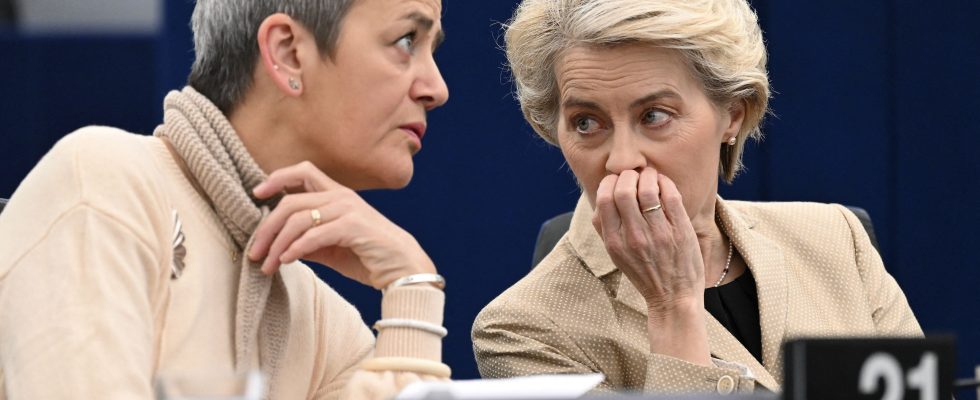This is a case that will leave traces in Brussels. Invoking the “political controversy”, the American Fiona Scott Morton threw in the towel this Wednesday, July 19. The Yale University professor will therefore not hold the strategic position of chief economist in the European Commission’s competition directorate. Public criticism, mainly French, had been pouring in for several days and its withdrawal seemed inevitable after Emmanuel Macron’s public position the day before. The French president said he was “doubtful” about his appointment. The defense of the Vice-President of the Commission responsible for this choice was also not convincing. Hearing Tuesday evening in the European Parliament in an icy atmosphere, Margrethe Vestager remained vague on the conflicts of interest of the former Microsoft or Apple consultant, on the grounds that this information should remain confidential. Internally, several members of the European Commission, led by the French Thierry Breton, had stepped up to demand a review of the decision.
The decision of Fiona Scott Morton, whose skills are unanimously praised by her peers, will allow the storm that has been raging for a week to calm down. “There was a fire start with the risk of leaving a huge field for the extremes, but the system showed that there was a reflex of European sovereignty with antibodies”, wants to believe a diplomat. Certainly. But in a few days, what damage…
Lack of political sense
Image damage in the first place for the European Commission which lacked political sense in choosing a candidate whose atypical profile should have, at the very least, raised questions. The decision has been made in extremis at the last meeting of the college of 27 commissioners before the summer. Often accused of being too Atlanticist, Ursula Von der Leyen did not see or did not want to see how the choice of an American risked causing political turmoil in certain parts of Europe. The revolt of part of his Commission also sends a rather deleterious message of disunity.
Margrethe Vestager also comes out weakened. As she targets the presidency of the European Investment Bank, the Competition Commissioner’s star has faded. His choice to appoint Fiona Scott Morton was also one of his very last decisions, because she will leave her current position to campaign.
In European political families too, the controversy will leave its mark. The macronists fired red bullets at Vestager, who nevertheless belongs like them to the centrist Renew family. Among the Greens, the case literally turned on the soap opera. Belgian Philippe Lamberts, chairman of the parliamentary group, first signed an anti-Scott Morton letter with his centrist, conservative and social-democrat colleagues, before doing a spectacular about-face last weekend via a tweet praising qualities of the economist. He has since disappeared from the scene. While the French Greens criticized the decision, the German or Nordic Greens welcomed it. The impression of discord is obvious.
negligence
Finally, it is obvious that the French can pride themselves on having won a very symbolic victory for the strategic autonomy of Europe, which is so close to their hearts, against the camp of the followers of a more open world of which they denounce naivety. “If this withdrawal was accepted, it is because no capital has taken a position to defend Ms. Scott Morton”, points out a hexagonal source. The sovereignty camp has therefore scored points.
But at what cost ? In France, the spotlight on European amateurism delights Eurosceptics and Europhobes. Wouldn’t it have been possible to disconnect Fiona Scott Morton’s candidacy earlier and more discreetly? After all, the Bloomberg agency had revealed the information as early as April. Letter A had widely reported at the end of June that things were becoming clearer. The article had circulated, some had alerted, including in France: “Honestly, we had not paid attention to it”, we are told. This period being very busy on the European agenda, no one seems to have taken the measure of the risk of an explosion. In the end, the pro-European camp publicly displayed its divisions before the eyes of public opinion, less than a year from the European elections. “Fortunately it’s summer now,” breathes a Brussels source, a little dismayed.
